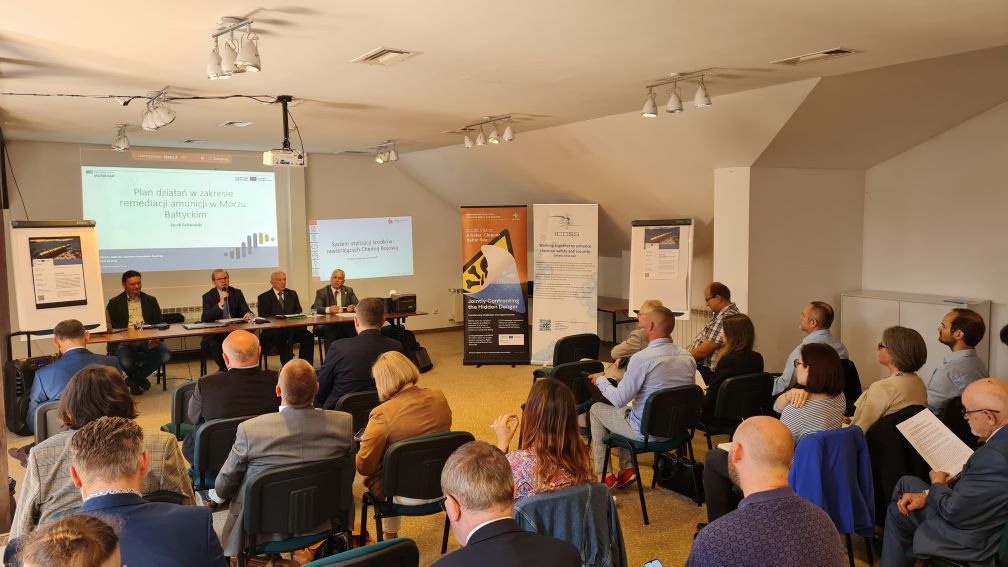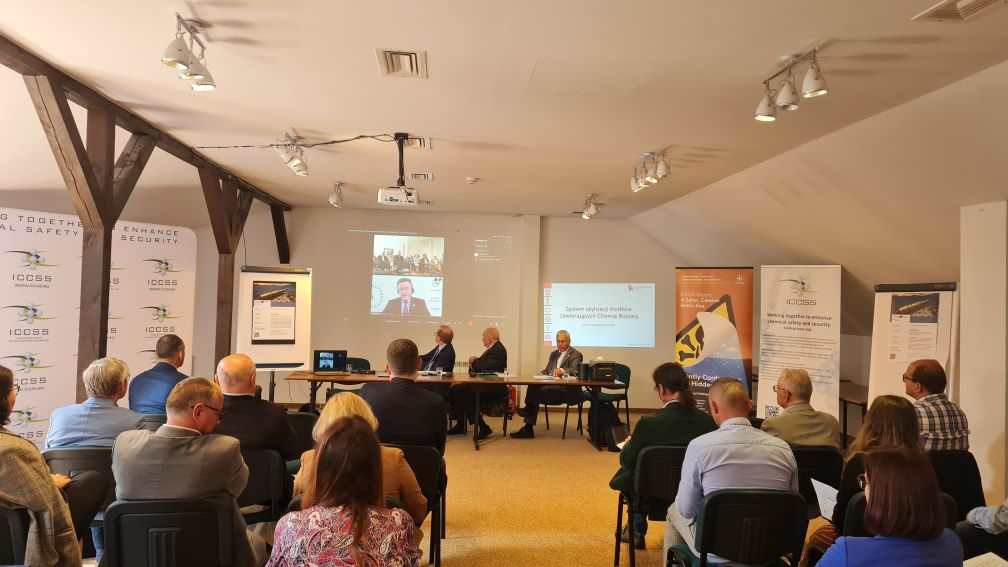Highlighted Threats
Participants underscored that the Baltic Sea hides vast amounts of dumped chemical weapons and conventional munitions, remnants of World War II. These materials pose significant threats to the environment, economy, and public health. Climate changes, growing economic and offshore activities, and hybrid threats in the Baltic Sea aggravate the situation.
New Approach to Dumped Chemical Weapons
The meeting supported the ICCSS's new broad approach to dumped chemical weapons. "Dumped chemical weapons and munitions do not pose a real threat to military security and national defense. They are an economic, environmental, and health problem," said Krzysztof Paturej, President of ICCSS. This broad approach was initiated in the ICCSS publication: From Talk to Walk: Addressing the Threat of Sea-Dumped Chemical Weapons in the Baltic Sea; A Guidance to Action and Global Efforts. The ICCSS publication offers a broad and inclusive approach to sea-dumped chemical weapons and invites multi-stakeholder and multi-dimensional cooperation, free from historic and political considerations which have blocked real solutions to this growing problem in the past.
Offshore Cooperation and Environmental Protection
All offshore activities, especially those involving seabed operations, must consider the potential presence of dumped chemical weapons. Ensuring that these activities do not harm the Baltic Sea environment is imperative. Compliance with international, EU, and national regulations is essential for operations in regions where such weapons might be present. Participants agreed that without a safe disposal process, which includes legal, administrative, technology, and operational systems, offshore wind farm projects are at risk. Developing comprehensive protocols for safe disposal will protect the marine ecosystem and ensure the continuity of renewable energy projects.
MUNIMAP Program: A New Hope for the Baltic
A key highlight was the presentation of the new EU program MUNIMAP (Munitions in the Baltic Sea Mapping Project). This initiative brings together experts from all Baltic states, except Russia, to develop solutions for detecting, assessing risks, and safely neutralizing underwater munitions. Funded by the EU's Interreg Baltic Sea Region program, MUNIMAP aims to address the longstanding issue of dumped munitions. In Poland, the Institute of Oceanology PAN in Sopot leads the project.
"Dumped munitions in the Baltic are a very real problem for all countries in the region. The most pressing issue is to prepare a monitoring strategy and create a roadmap for remediation," said Prof. Jacek Bełdowski from the Institute of Oceanology PAN.
International Cooperation and Legal Regulations
The 2021 European Parliament resolution marked the first step in plans to remove dumped chemical weapons from the Baltic Sea. This resolution brought the issue to the European agenda, moving it from expert discussions to actionable decisions. The efforts of the UN and the Organization for the Prohibition of Chemical Weapons (OPCW) should support the resolution of this issue.
Prof. Stanisław Pawlak, a member of the International Tribunal for the Law of the Sea, emphasized the need for legal regulations addressing dumped chemical weapons, both in international and national laws.
Vision for an International Reference Center in Gdansk
The meeting also presented the vision for developing an international reference center in Gdnask for dumped chemical weapons. This center would serve as a hub for international legal cooperation, technology exchange, and experience sharing.
Conclusions and Recommendations
Key conclusions and recommendations from the meeting include:
- The necessity to develop and implement strategies for monitoring and neutralizing dumped chemical weapons and munitions in the Baltic Sea.
- National and international cooperation to implement the MUNIMAP program and other initiatives to solve the dumped weapons problem.
- The establishment of an international reference center in Gdansk to enhance and coordinate legal, policy, technology, and science cooperation related to dumped chemical weapons.
- The inclusion of dumped chemical weapons as a priority for Poland's EU Council Presidency in 2025 and the Poland Presidency in the Council of the Baltic Sea States in 2025/2026.
Our goal is to shift from a traditionally military and defense perspective to viewing this issue as an economic, environmental, and health threat. Through a broad approach and international cooperation, we have the chance to effectively address the problem and start the process of cleaning the Baltic Sea from dumped chemical weapons and conventional munitions.
The meeting outcomes were presented by the Polish Press Agency (PAP). Link PL version): https://www.pap.pl/mediaroom/rosnace-zagrozenie-zatopiona-bronia-chemiczna-w-morzu-baltyckim-od-dyskusji-do-dzialania


